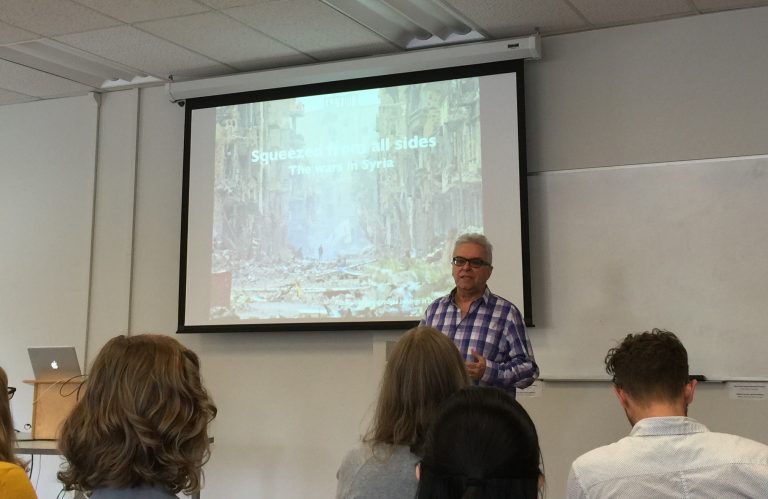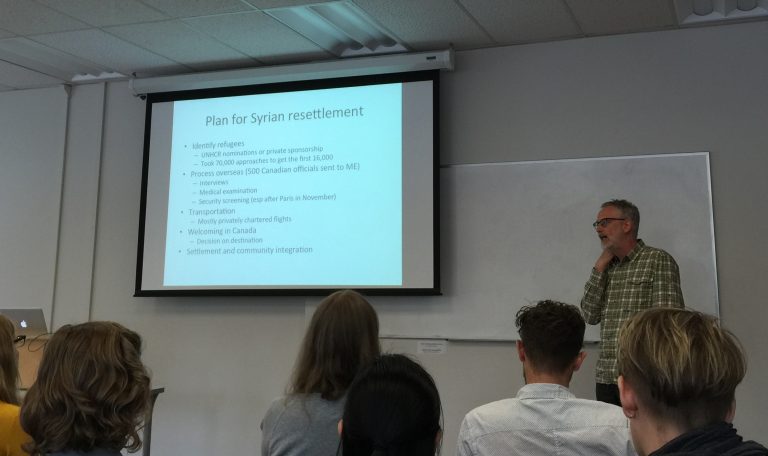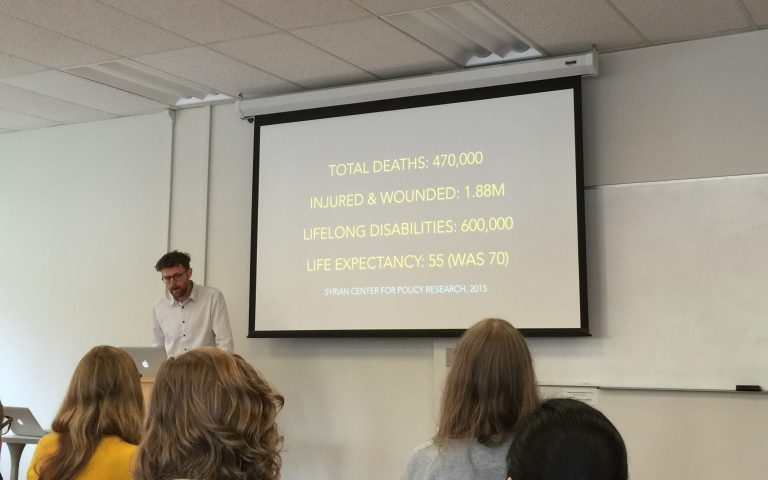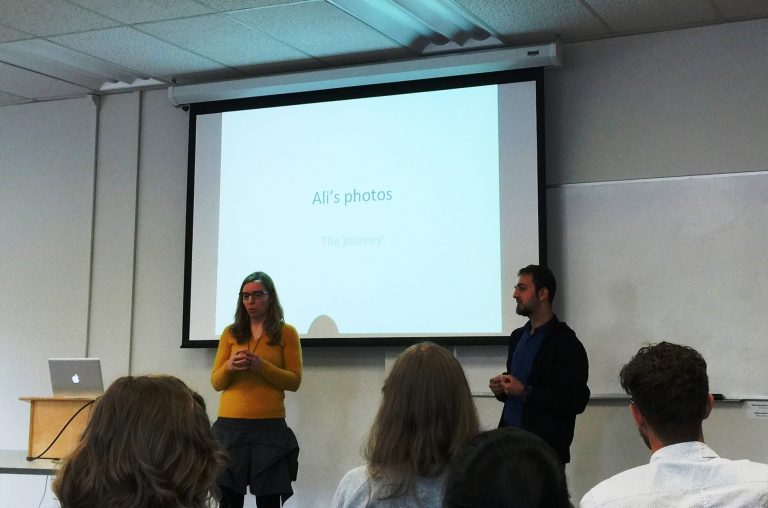On April 13th, UBC Geography’s Equity and Diversity Committee hosted their first Teach In, an educational forum on a complex issue: the Syrian Refugee Crisis. The Teach In included the departmental expertise of Derek Gregory, Dan Hiebert, Siobhan McPhee, and Craig A. Jones.
Professor Juanita Sundberg, Chair of the Equity and Diversity Committee, introduced the teach in as an opportunity for our community to discuss and learn about bigger, topical issues.
Professor Derek Gregory began the teach in by giving an introductory run through of the political situation in Syria, using the 2011 Arab Spring (popular transregional democratic struggles) as a starting point to the current conflict. Though there is internal warfare between the government, rebel forces, and ISIS, Syria has also become the stage for a proxy war for many different groups such as US/NATO and Russia, Saudi Arabia and Iran, Kurdistan and Turkey. Unlike many other terrorist organizations, ISIS had great territorial plans with an elaborate state council and goals for creating a stable economy.
Professor Dan Hiebert presented on Canadian institutional perspectives and activities in response to the Syrian Refugee Crisis. He shed light on the resettlement plan of refugees, of their journey from different refugee camps, how they are identified and processed overseas, to Canada and then resettled in different Canadian cities. Some concerns that have come up include the fast pace of settlement and its impact on certain services, larger families than expected, less official languages proficiency than expected, and lower levels of formal education than expected.
PhD Candidate, Craig A. Jones, explored the precarious healthcare situation in Syria through facts and statistics: Syria’s life expectancy has plummeted from 70 to 55 years; medical infrastructures are often intended targets of attacks; only 50% of hospitals are fully functioning. In 2011 there were 5000 doctors in Aleppo; in 2013 there were 36.
Craig also discussed the constant presence of healthcare during the refugee resettlement process; health conditions are often unreported and many are concerned about the long term effects of post-traumatic stress disorder.
Dr. Siobhán McPhee discussed the complicated process of forming a G5 (group of five) private sponsorship and selecting a family, as well as the cultural misunderstandings that arise when the refugees arrive. Their G5 was finally matched with Ali and his brother who is still in Beirut. Ali was able to join us for the teach in and speak to the group about his journey from Syria to Canada. He currently has one brother in Saskatoon who had been selected for resettlement much earlier with his wife and children; his mother and sisters are still in their hometown.
Ali talked about life before the civil war, before the 2011 Arab Spring. He described pre-war Syria as one of the most stable country in the Middle East at the time. When the conflict started, he went to Damascus because it seemed safer; men left often to avoid being forced into the army or ISIS. From Damascus, he and a group of 50 escaped to Lebanon. They walked through the mountains, travelling at night and sleeping during the day to avoid detection. They walked for 20 days, eating only once a day to conserve supplies.
Beirut was overwhelmed by refugees. They registered with the UN and approached different embassies. The vetting and application process took 1.5 years in total; the brothers had considered the highly dangerous option of sea crossing when life in Beirut became too difficult. Fortunately, Ali’s brother’s family was selected and Ali’s application went through not too long after and he arrived in Vancouver in late 2015.
The teach in ended with a slideshow of photos Ali took during his journey as well as informal discussion among the attendees and presenters. The overall event was a great success in the department that brought Geography community together in an effort to learn more about this current global crisis on both a macro and micro level.






